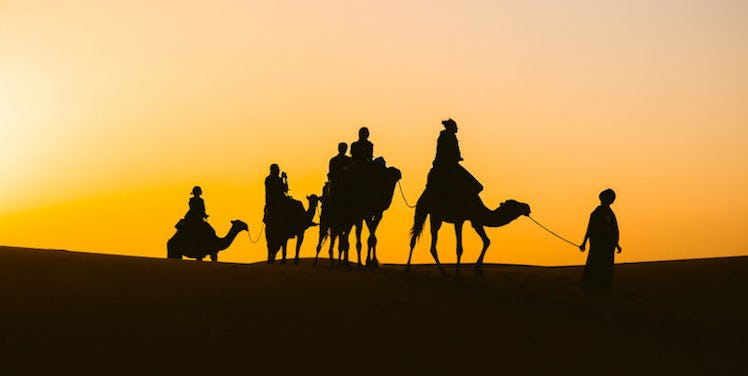
This One Company Is The Only Reason You Want To Travel So Much
Our generation has caught this bug called wanderlust. It makes it impossible for us to sit in one place for too long, and it gives us this need to hop on planes and see the world.
I blame National Geographic for the whole epidemic.
Think about what they did to us as children. Growing up, Nat Geo was just part of our weekly (if not daily) lives. My older brother got the magazines in the mail, which means I got them when he was done with them. We all watched their channel. On sick days when nothing but “baby” cartoons were on the normal channels like Disney or Nickelodeon, I watched Nat Geo Wild and saw footage of real lions in the savanna.
How did they think as a little impressionable girl I could see lions on my TV and not want to see them in real life? But the thing that really got me was that they showed people traveling to see them. The hosts would document to the whole thing, which clearly showed me that a real person was going out into the wild and seeing lions with their own eyes. Not the kind that were in a fake exhibit. Not the kind that had thousands, if not millions of people watching them every day. Wild ones.
How did they expect to show me that and me just forget about it? How could they show me places as beautiful as India or the Philippines and not expect me to want to go there at some point in my life?
In 1996, National Geographic launched their website, they gained unprecedented access into the white house to film inside the White House, Will Steger became the first National Geographic explorer-in-residence and their channel launched internationally. From 1995 to about 2009, the brand defiantly saw some big achievements, which led to them becoming a household name. In 2006, for example, their film "March of the Penguins" won an Academy Award for best documentary feature. Think about how old you were 10 years ago when this happened. I was 10, my brother was 11 and my sister was 8.
National Geographic's main spotlight in the general public was at a time when our generation specifically was most impressionable. We were watching explorers, reading about foreign places and dreaming of being right beside the Nat Geo explorers and photographers.
Why does it matter that National Geographic developed into a household name when many Millennials were under the age of 10?
Because it means that National Geographic raised a generation of explorers.
About a month, before I started college, I decided that my complete dream job would be working for National Geographic. That was my goal. I wanted to design their magazine, I wanted to explore the world with their company and I wanted to do whatever the heck they would let me do.
It's not the surprising of an idea. Like many, I've always loved animals, and I've always loved traveling, so naturally my dream job would combine the two.
And Nat Geo did that.
Their employees, after all, got to travel the world and document wild animals. Their one job was to travel. They literally got paid to go to exotic places and tell people about it. That was their job.
The surprising aspect, however, is that when I got to college, I found whole departments of people who had that same dream. If you asked a handful of the students in my department what their dream job is, and I mean if they could do anything and they didn't factor outside variables in, they would tell you some form of working for National Geographic.
Seriously, one would tell you she wants to be a Nat Geo explorer, another would say Nat Geo photographer, and someone else would tell you Nat Geo researcher. Now you could argue that it's because they are “science people” and National Geographic is a Science company. Which puts a hole in the theory until I tell you that an art major also has the National Geographic dream and so does the girl who is a business and poverty studies double.
The point is, growing up with National Geographic as a constant but not overbearing presence in the Millenial's life showed us that the sky is the limit. They were the first company to show us that people can make a career out of traveling. They are the company that planted the wanderlust in us.
Now all we can do is live with it.